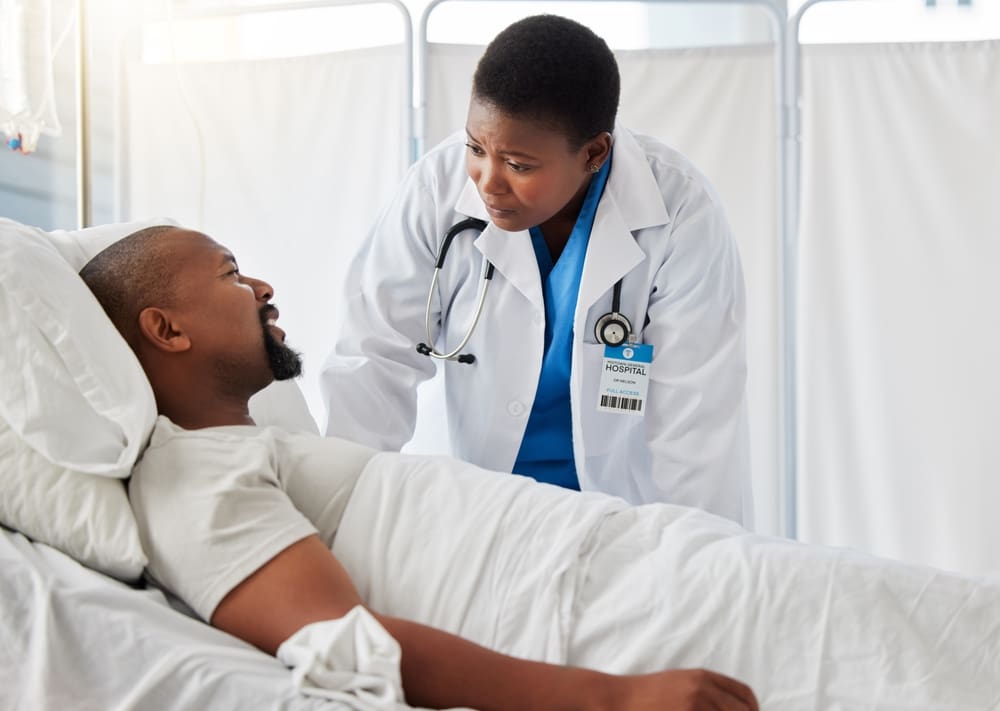Unlike regular tiredness from a busy day, cancer-related fatigue doesn’t improve with rest or sleep. The body works overtime fighting the disease, leading to constant exhaustion that interferes with daily life. This type of persistent tiredness commonly appears in people diagnosed with leukemia, colon cancer, and stomach cancer.
The second red flag – Dropping pounds without trying
When someone loses 10 pounds or more without changing their diet or exercise routine, their body might be signaling a serious health concern. Rapid, unexplained weight loss often occurs with pancreatic, stomach, esophageal, and lung cancers as the body burns extra calories combating the illness.
The third indicator – New skin changes
Our skin often reveals internal health issues before other symptoms appear. New growths, non-healing sores, or changes in existing moles deserve attention. Medical experts note that melanoma frequently shows up as alterations in mole size, shape, or color. Additionally, yellowing skin and eyes might point to liver or pancreatic issues.
The fourth warning sign – Pain that won’t go away
Persistent pain without an obvious cause needs medical evaluation. Ongoing headaches resistant to treatment could indicate brain concerns, while sustained back pain might suggest ovarian issues. Bone pain, particularly when it persists or worsens, requires prompt medical attention.
The fifth signal – Different bathroom patterns
Changes in bowel or bladder habits lasting more than a few weeks warrant investigation. Medical professionals identify several key changes to watch for: blood appearing in waste, ongoing loose stools or constipation, incomplete emptying sensations, and frequent or painful urination.
The sixth alert: Unexpected bleeding
Blood appearing where it shouldn’t raises immediate concerns. This includes coughing up blood (possibly indicating lung issues), blood in waste (potentially signaling colorectal problems), unexpected vaginal bleeding after menopause (possibly indicating endometrial or cervical issues), and blood in urine (which might suggest bladder or kidney concerns).
The seventh warning – Unusual lumps
Finding lumps or swelling that stays longer than a few weeks requires evaluation, especially in breast tissue, testicles, lymph nodes, and soft tissues. While many lumps turn out harmless, medical professionals emphasize the importance of proper examination to rule out serious conditions.
What medical experts recommend
Medical professionals emphasize that experiencing these symptoms doesn’t automatically mean cancer, but timely evaluation remains crucial. Dr. James Chen at Memorial Sloan Kettering Cancer Center explains that modern testing methods can detect cancer earlier than ever before, significantly improving treatment outcomes.
Understanding your family history
Knowing your family’s medical background plays a vital role in early detection. People with first-degree relatives diagnosed with cancer often benefit from starting screening tests earlier than typically recommended. Medical experts suggest maintaining detailed health records and sharing this information with healthcare providers.
The role of regular screenings
Beyond watching for warning signs, scheduled cancer screenings help catch potential issues before symptoms appear. Different age groups face varying risks, leading to specific screening recommendations – Women 40 and older need regular mammograms for breast cancer detection. People 45 and above should schedule regular colorectal cancer screenings. Cervical cancer screening starts at 21, while lung cancer screening applies to long-term smokers over 50.
Lifestyle factors that affect cancer risk
While some cancer risks stem from genetics, lifestyle choices significantly impact overall cancer risk. Medical research shows that maintaining a healthy weight through proper nutrition and regular exercise reduces cancer risk. Limiting alcohol consumption and avoiding tobacco products also play crucial roles in prevention.
The impact of early detection
Statistics show that early cancer detection dramatically improves survival rates. For instance, breast cancer caught in stage 1 has a five-year survival rate exceeding 90%, compared to 30% when discovered in later stages. Similar patterns exist across most cancer types, underlining the importance of prompt medical attention when warning signs appear.
Advanced testing methods available today
Modern medical facilities offer various sophisticated testing options for cancer detection. These include -Blood tests that screen for specific cancer markers Advanced imaging techniques like MRI and CT scans Genetic testing for hereditary cancer risks New molecular testing methods that examine cancer at the cellular level
Creating a health monitoring plan
Medical experts recommend developing a personal health monitoring strategy. This includes – Regular physical examinations with primary care physicians Monthly self-examinations for breast or testicular changes Skin checks every few months, especially for those with risk factors Prompt medical consultation when warning signs appear
The psychological aspect of testing
Fear often prevents people from seeking medical evaluation when symptoms appear. However, medical professionals emphasize that anxiety about potential diagnosis shouldn’t delay testing. Most medical facilities now offer support services to help patients manage stress during the testing process.
Insurance and testing accessibility
Many insurance plans cover cancer screening tests as preventive care. For those without insurance, numerous organizations provide free or low-cost screening services. The American Cancer Society maintains a database of resources for affordable testing options nationwide.
Recovery success stories
While cancer diagnoses understandably cause concern, modern treatment methods continue improving success rates. Many people who recognized early warning signs and sought prompt medical attention now lead healthy lives after treatment. These success stories emphasize the value of early detection and swift medical response.
Latest developments in cancer detection
Research continues advancing cancer detection methods. New blood tests can now screen for multiple cancer types simultaneously, while artificial intelligence helps identify subtle changes in imaging results. These developments make early detection increasingly accurate and accessible.
Building a support system
Medical professionals recommend building a support network before health issues arise. This includes -Establishing relationships with healthcare providers Identifying trusted family members or friends for support Learning about local medical resources and support groups Understanding available counseling and mental health services
The importance of documentation
Keeping detailed records of symptoms, when they started, and how they progress helps healthcare providers make accurate assessments. Medical experts suggest maintaining a health journal that tracks. Changes in physical condition Timing and duration of symptoms Factors that improve or worsen symptoms Impact on daily activities
Moving forward with awareness
Understanding cancer warning signs empowers people to take charge of their health. Medical professionals emphasize that knowledge combined with action provides the best defense against cancer’s impact. Regular monitoring, prompt attention to warning signs, and maintaining open communication with healthcare providers create a strong foundation for early detection and successful treatment.














